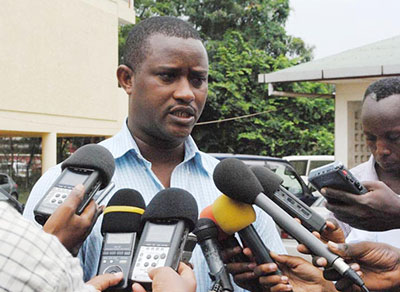
Burundi’s journalist union takes repressive press law to court
If the state decides that a journalist’s article in Burundi jeopardizes someone’s “moral integrity” under the country’s Media Law it can demand that the journalist reveals sources, and it can suspend the publication. “It’s a backwards, freedom-killing law,” said Alexandre Niyungeko, the founder and head of the 300-member Burundi Union of Journalists. Despite the press…
A bid to rid Africa of criminal defamation, sedition laws
The African Union’s special rapporteur on freedom of expression and access to information, Commissioner Pansy Tlakula, has launched an auspicious initiative in East Africa to counter criminal defamation and sedition laws. Since independence, authorities and business interests in the East and Horn region have used criminal laws on sedition, libel, and insult–often relics of former,…
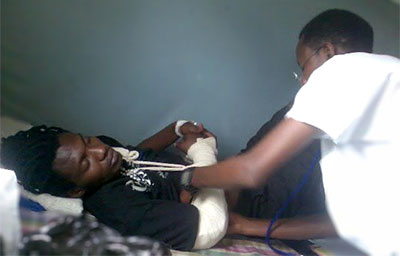
Burundi reporter shot by police for seeking information
Burundi’s government took unusually swift action last week in response to the police shooting of a radio reporter, after the journalist sought information at a roadblock in the capital Bujumbura where market vendors were allegedly being “taxed” for passage. Perhaps the shooting could have been averted if authorities had bothered to discipline officers involved in…
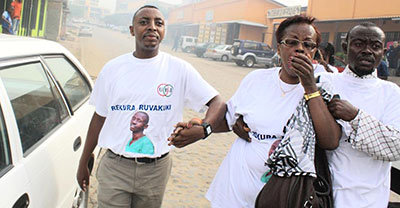
Burundi police attack journalists marching for Ruvakuki
On Tuesday, Burundi’s press corps did what it has done for the past three weeks: protest the imprisonment of one of its own. Hassan Ruvakuki is a reporter jailed since November 28, 2011 on anti-state charges; for the first time, the journalists wore white t-shirts showing Ruvakuki in his green prison uniform. But this time,…
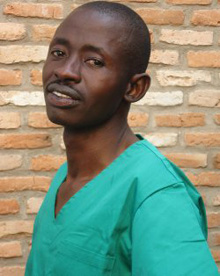
Burundi journalists march to support Ruvakuki
At 8 o’clock Tuesday morning roughly 50 Burundian journalists silently marched around the courthouses in the capital, Bujumbura, and the offices of the justice minister, protesting the imprisonment of their colleague, Hassan Ruvakuki. “They sentenced him to three years without following the law,” said Patrick Nduwimana, one of the protest organizers and the interim director…
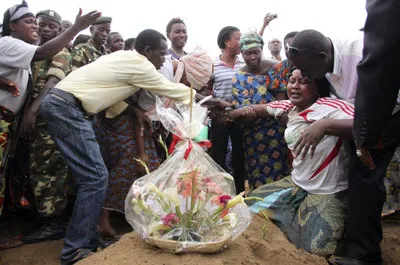
Burundi media defy censorship order
Tensions between the Burundi government and the local press are bound to increase as several media this week defied an order not to investigate or discuss a recent massacre. While officials say the measure is “temporary” and necessary to safeguard national unity and the course of justice, independent journalists are asserting their right to publish…
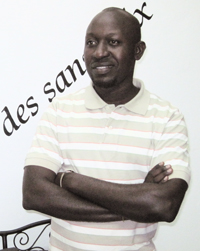
Burundi’s journalists and lawyers face intense harassment
It’s possible that no journalist in the world has received more court summonses in recent weeks than Editor Bob Rugurika of Burundi’s Radio Publique Africaine (RPA), a station founded by CPJ award-winner Alexis Sinduhije.On Tuesday, for the fifth time since July 18, Rugurika was interrogated by a magistrate in the capital, Bujumbura, about programs aired…
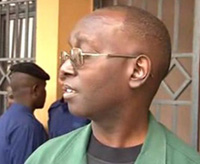
Journalist freed in Burundi vows to keep reporting, carefully
As recently as April, the state prosecutor in Burundi demanded journalist Jean-Claude Kavumbagu be put away for life. But just a month later, Africa’s only jailed online journalist was a free man. A relentless international campaign by press freedom groups, human rights activists and Western governments had paid off.
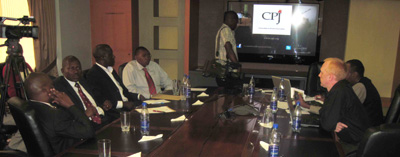
Nairobi Attacks launch probes investigative reporting
At CPJ’s book launch of our annual survey of press freedom conditions across the world, Attacks on the Press, today in Nairobi, we focused on the growing theme of challenges to investigative journalism in Africa, with a particular look at East Africa. The subject certainly resonated with the local and foreign journalists here.
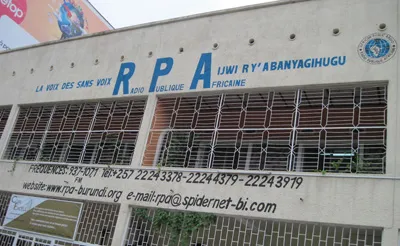
The good times are gone for Burundi’s press
After 2006, Burundi’s government and media relations seemed promising. The airwaves had been open to private broadcasters for years; the president held frequent press conferences, and the government commended the unified press for its professional 2010 pre-election coverage. “The president had organized an open dialogue with the press before the elections,” Information Minister Concilie Nibigira…